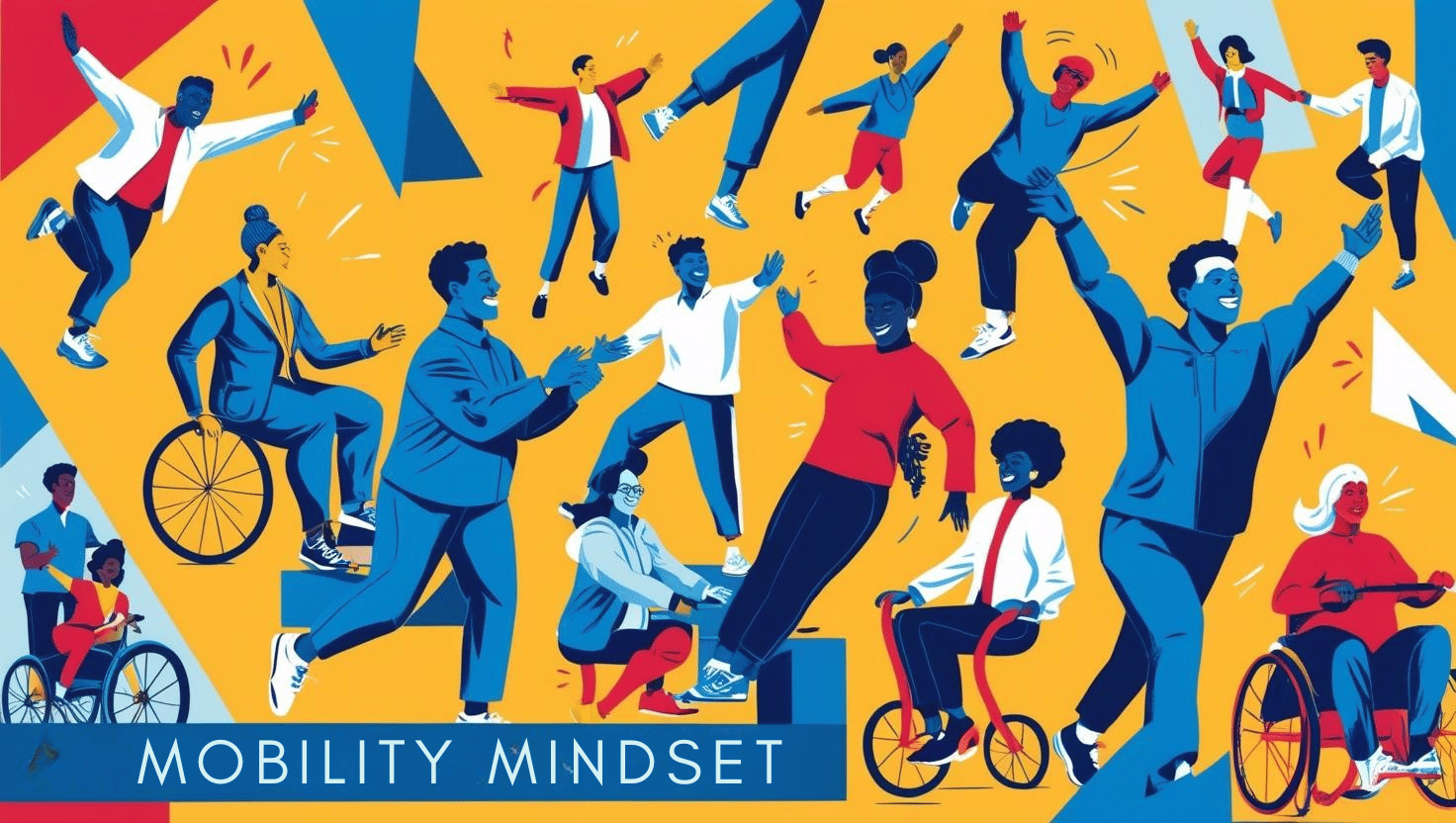Getting Rid of Limiting Beliefs: Adopting a Mobility Mindset Looking back on my journey, I see that limiting beliefs have frequently served as unseen chains that limit my options. These ideas, which were frequently developed as children or as a result of prior experiences, establish a mental framework that determines what I believe I am capable of. They subtly mutter in my ear that I’m not talented, intelligent, or just worthy of success. It’s amazing how these ideas can affect my reality, frequently without my knowledge.
Quick Summary

Photo by ‘Matt Foxx’ on Unsplash.com
Limiting beliefs can appear in a variety of ways, such as self-doubt or failure-related fear. Since they may be so deeply embedded, it may be difficult to distinguish them as ideas rather than unchangeable facts. For example, I used to think that a creative career was unrealistic & would result in unstable finances.
For years, I was unable to pursue my passions and potential because of this belief. The first step in escaping their hold is realizing that these beliefs are perceptions rather than facts. Limiting beliefs have a significant and frequently negative influence on personal development. I know firsthand how these ideas can stifle creativity and ambition.
I was trapped in a cycle of mediocrity, avoiding chances and risks that could have advanced me, when I let my fears control my decisions. I felt as though I was confined to a cage that I had built for myself, with my own uncertainties and fears serving as the bars. Also, limiting beliefs can have a cascading effect on different facets of life. They impact relationships and career opportunities in addition to impeding personal growth. I observed that I was reluctant to take on new tasks at work or participate completely in social situations when I had self-doubt.
This self-imposed restriction not only made me less confident, but it also kept me from developing deep relationships with people who could have helped me advance.
A critical first step in conquering limiting beliefs is acknowledging them. I started this process by writing down my feelings and thoughts in a journal & doing self-reflection. I was able to pinpoint the particular beliefs that were preventing me from moving forward & recognize recurrent negative patterns by writing things down. Seeing how many of these ideas were inflated or unfounded, frequently stemming from fear rather than reality, was eye-opening.

Photo by Robs on Unsplash.com
After identifying these limiting beliefs, the next step was to face and eliminate them. This entailed contesting the veracity of these ideas and substituting empowering statements for them. For example, I began affirming that I was resourceful & resilient rather than telling myself that I couldn’t accomplish my goals. This mentality change took time to develop; it took practice and constant effort. But as time went on, I started to feel lighter & more free from the limitations of my prior beliefs. For me, developing a mobility mindset has changed everything.
This way of thinking places a strong emphasis on adaptability, flexibility, and the readiness to welcome change. I have discovered that challenges can be viewed as chances for learning and development rather than as barriers. This change in viewpoint has made it possible for me to face life with curiosity rather than fear, which has led to new opportunities and experiences. Adopting a mobility mindset entails letting go of my comfort zone and being adaptable. I’ve discovered that I’m more inclined to take chances that result in both professional and personal development when I approach situations with an adventurous mindset.
For instance, instead of seeing a new project at work as a failure, I decided to see it as an opportunity to grow my skill set. This way of thinking has improved my life by giving me a variety of experiences in addition to boosting my confidence. Personal growth requires embracing change, and a crucial part of this process is adaptability. I’ve experienced many changes in my life, some anticipated and some unanticipated. I was afraid of the unknown, so I initially resisted change, but now I realize that it’s a necessary aspect of life.
I’ve become more adept at handling changes by embracing this fact. Being flexible has grown to be a useful ability in both my personal and professional life. I now concentrate on figuring out answers and changing my strategy when faced with obstacles or setbacks rather than giving in to frustration or hopelessness. This adaptability has helped me flourish in changing circumstances and has strengthened my ability to bounce back from setbacks. My perspective on life has changed as a result of accepting change; instead of dreading it, I now see it as a chance for personal development. It takes deliberate tactics and persistent work to overcome limiting beliefs.
Being surrounded by positive influences—people who encourage and inspire me—has proven to be an effective strategy for me. Redefining my ideas of what is possible has been made possible in large part by interacting with people who push me to think outside the box and inspire me to achieve my objectives. Setting modest but attainable goals has also aided me in gaining momentum in my quest to overcome limiting beliefs. By acknowledging every accomplishment, no matter how small, I strengthen the notion that I am able to develop and evolve. I get more confidence from this practice, and it also generates a positive feedback loop that motivates me to keep pushing past my perceived boundaries.
One of the most important parts of my journey to overcome limiting beliefs has been developing resilience. Resilience is about building the mental toughness to take on obstacles head-on, not just about recovering from setbacks. Resilience is not only developed through persistence and a willingness to learn from mistakes, but also through confidence. I have learned this from a range of experiences, both positive and negative. Having the confidence to face challenges and setbacks head-on, and the belief in one’s ability to overcome them, is a crucial element in the development of resilience. It is through these experiences that I have come to understand the importance of confidence in building resilience.
My confidence has significantly increased as a result of my efforts to dispel my limiting beliefs. I strengthen my conviction that I can accomplish my objectives every time I confront a pessimistic thought or take a chance in spite of my anxieties. I can now take advantage of opportunities that previously seemed unattainable thanks to my increased confidence, which further advances my personal development. In the end, adopting a mobility mindset has been essential to my success in a number of spheres.
An atmosphere where innovation and creativity flourish is fostered by this way of thinking. I’ve been able to adjust to shifting conditions and grab opportunities that fit with my interests and goals by staying receptive to new concepts and methods. A mobility mindset’s strength is in its capacity to turn obstacles into opportunities for achievement. I no longer see obstacles as barriers, but rather as essential components of my journey, each one teaching me something new that advances my development.
This change in perspective has improved not only my career accomplishments but also my personal life by enabling me to pursue meaningful experiences and build stronger relationships. In conclusion, it takes commitment and an openness to change to overcome limiting beliefs.
Unlocking our full potential and achieving success beyond our wildest expectations requires us to adopt a mobility mindset, which means being open to change and constantly seeking new opportunities for growth. It also involves identifying and dispelling limiting beliefs that may be holding us back, and boosting our resilience and confidence to overcome challenges and setbacks. By developing these key attributes, we can create a solid foundation for reaching our highest potential and achieving the success we desire.




